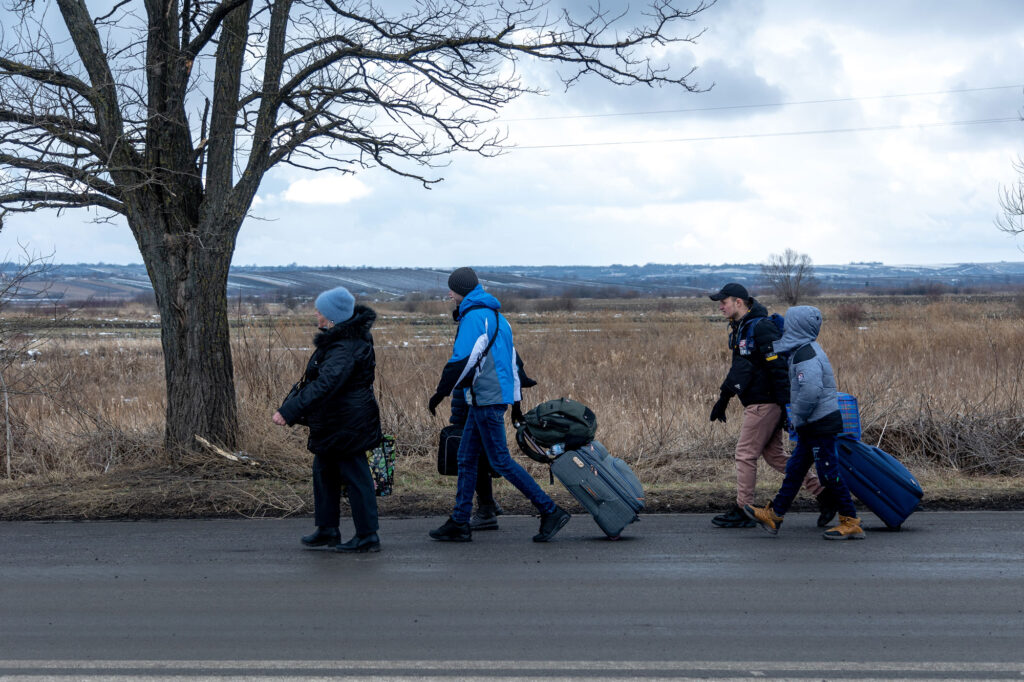Medical Care
Before the war, we worked closely with local partners to operate mobile medical teams providing healthcare services—including specialties such as gynaecology and cardiology, as well as prescription medication—to villages around Mariupol, near the original line of contact in the eastern conflict. With war now raging throughout the country, we have moved hundreds of tons of critical medicines, supplies and equipment to overwhelmed healthcare facilities inside Ukraine, to serve millions of people, and will continue supplying hospitals as needed.
Across the country, International Medical Corps has identified different needs based on the local context, always working to ensure continuity of care in the country. We are ensuring that healthcare facilities in active conflict zones have the supplies they need—including medicines, blood, etc.—and are strengthening buildings to withstand attack, so these facilities can continue operating. In areas that have seen conflict but where the invader has been pushed back, International Medical Corps is helping to rehabilitate healthcare facilities that have been damaged by the fighting while providing the support needed to restore care to the community. In areas under threat of attack, we are upgrading systems, hardening facilities and ensuring alterative sources of water supply, among other measures. For example, the June 2023 breach of the Kakhovka Dam has disrupted water supply for hundreds of thousands of people and the healthcare facilities that serve them, and we are working to ensure that these people and facilities can continue to access clean water.
International Medical Corps currently has operations in Chernihiv, Dnipro, Kharkiv, Kyiv, Lviv, Mykolaiv, Odesa, Stryi and Vinnytsia. From these operational hubs, we also provide material support in the way of food, non-food items (NFIs), and medical supplies and equipment to Donetsk. In all of our efforts, rather than establishing a parallel system, we support and operate out of existing health centres or community spaces, helping to strengthen and supplement existing capacity. Our training programmes also seek to strengthen the capacity of Ukrainian care providers and first responders to provide emergency and trauma care.
In addition, for as long as we’ve been in Ukraine, International Medical Corps has been working with the country’s Ministry of Health (MoH) to coordinate efforts. We will continue to work with the MoH—as well as with local ministries of health in the country’s oblasts—to provide lifesaving services to community members, internally displaced people or those forced to flee across international borders.
